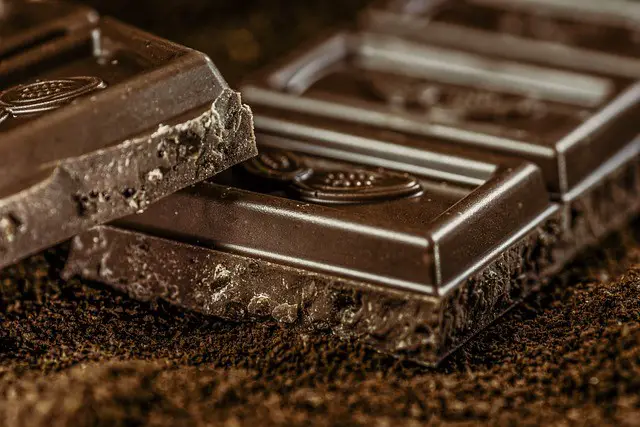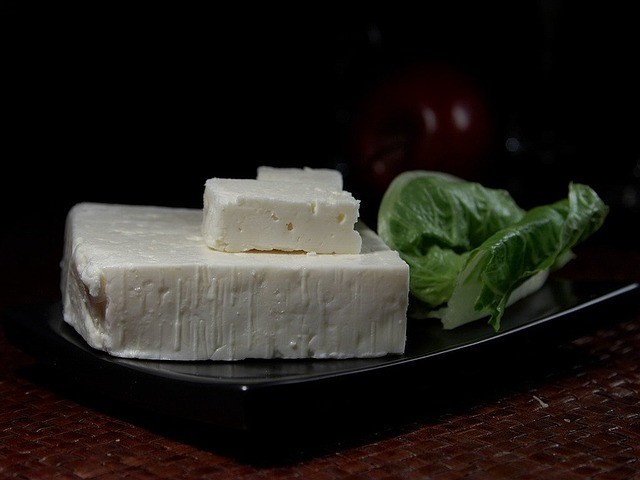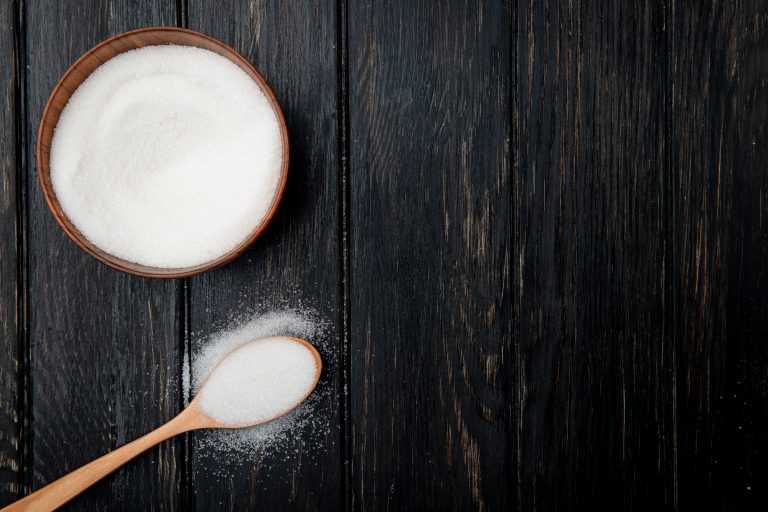The prevalence of cardiovascular disease is increasing due to the poor lifestyle choices people are making these days. Your diet plays a big role in the development of heart disease.
Once you are suffering from or at risk of heart disease, many dietary limitations are put in place to reduce the risk factors associated with heart disease.
A high cholesterol level is a risk factor for heart disease. To reduce this risk, you must make dietary changes that lower cholesterol levels in the body. That is why we’re looking at dark chocolate and cholesterol today.
I know that once you hear the word chocolate, your mind already clicks on increased sugar and bad health. But after reading this article today you will give dark chocolate cholesterol a chance in your healthy diet. Sweet tooth individuals are already dancing with joy at this news, I see you!
Does Dark Chocolate Have Cholesterol?
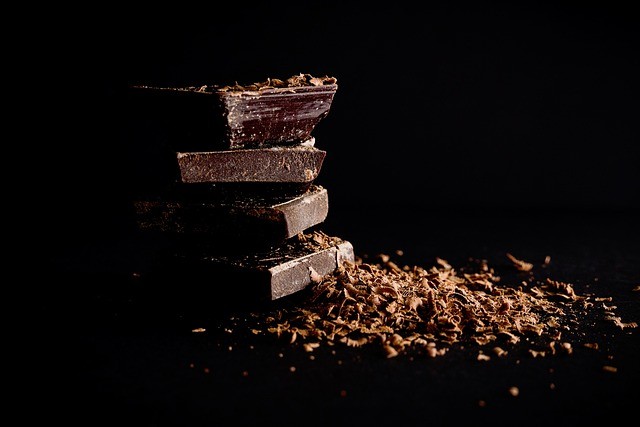
Yes, dark chocolate has cholesterol. In 100g of dark chocolate containing 70-85% of cocoa solids, you will get 3 mg of cholesterol. Dark chocolate is a rich source of saturated fat that has bad press out there. To which you will say isn’t dark chocolate cholesterol bad? First, eating saturated fat in a moderate amount is not bad for heart health.
Dark chocolate is a type of chocolate that contains cocoa solids and cocoa butter. The main difference between dark chocolate and white chocolate is the percentage of cacao powder in the chocolate and the ingredients used in making the chocolate.
Dark chocolate contains 50% to 90% cocoa and does not contain any milk or butter that is used in making milk chocolate. On the other hand, white chocolate contains 10% to 50% of cocoa and contains milk and butter. In addition, dark chocolate contains less sugar compared to white chocolate.
What makes dark chocolate healthy? Isn’t dark chocolate cholesterol unhealthy? The health benefits of dark chocolate are attributed to the high amounts of cocoa in this type of chocolate. Cocoa flavanols and polyphenols in dark chocolate are associated with lowering cholesterol levels in the body.
Dark Chocolate Cholesterol
One-third of the saturated fat content in dark chocolate is stearic acid. Stearic acid is a saturated fat but it has a neutral effect on bad cholesterol, it doesn’t raise or lower it. Research has shown that stearic acid does not increase cholesterol levels.
Some research has shown that stearic acid may be as effective as oleic acid in lowering plasma cholesterol levels. It also contains oleic acid like olive oil, an unsaturated fat, with cardio-protective effects.
Is Dark Chocolate Good for Cholesterol?

I know it is hard to believe that after all the restrictions placed on your diet to preserve heart health, there is a finger-licking dessert left that you could enjoy that won’t worsen the matter but be considered part of a healthy diet.
Your argument would be based on the fact that dark chocolate cholesterol is high in saturated fat, why give it a chance? Well, research has shown that dark chocolate, the high cocoa chocolate variety, has health benefits compared to other forms of chocolate.
A study to investigate the effects of long-term consumption of higher cocoa content chocolate on serum lipids and lipid peroxidation reported high polyphenol chocolate increased high-density lipoprotein (HDL cholesterol) while chocolate fatty acids increased low-density lipoprotein (LDL cholesterol) resistance to oxidative damage.
Moreover, another study examining the effects of high cocoa polyphenol-rich chocolate on lipid profile, weight, and glycemic control in diabetics resulted in a rise in HDL cholesterol in the high polyphenol group. There was a decrease in total cholesterol levels as well. These results can be achieved by consuming 45 grams of chocolate over 4 weeks.
A randomized controlled feeding trial published by the American Heart Association assessed the effects of dark chocolate and almonds on cardiovascular risk factors in overweight and obese individuals.
The evidence suggests consuming this variety of chocolate alone improved lipid profiles. It lowered LDL cholesterol and raised HDL cholesterol. Your risks of developing coronary heart disease are lowered when you eat almonds with dark chocolate.
A meta-analysis to examine the relationship between eating chocolate and diabetes, stroke and coronary heart disease reported a risk reduction in developing stroke and coronary heart disease.
The peak protective effects of the dark variety were observed at 2 servings per week, with no benefits emerging after increasing consumption to 6 servings a week.
Eating this delicious treat in moderate amounts lower fasting blood sugar and improve insulin sensitivity and reduces insulin resistance in diabetics.
The mechanism of action of this chocolate’s cholesterol-lowering effects can be attributed to its flavonoids. Flavonoids reduce weight in obese patients, insulin resistance, glucose tolerance, and fat and lipid profile.
They lower bad cholesterol and total cholesterol by promoting fat and energy metabolism. Flavonoids are also antioxidants that have anti-inflammatory effects on the body by modulating pathways like the AMP-activated protein kinase (AMPK) pathway.
What Type of Dark Chocolate is Good for Cholesterol?
When choosing dark chocolate that is good for lowering cholesterol, pick one with a high cocoa content. Check the labels to know how much cocoa solid is in your dark chocolate. Eat dark chocolate with a cacao powder content of 70% to 85%.
You will get better blood cholesterol-lowering effects by combining dark chocolate with other foods rich in antioxidants. Dark chocolate and almonds together have a greater effect on cholesterol levels than plain dark chocolate. So, if your dark chocolate has a higher cocoa content and almonds, you have hit the jackpot to reduce total cholesterol levels and lower the risk of cardiovascular disease.
Cocoa is delicious even without adding sugar so unsweetened dark chocolate would still taste as good. Eat dark chocolate made from unsweetened cocoa powder, which means it has 0% added sugar.
Natural cocoa powder is loaded with antioxidants, catechins, polyphenols, and flavanols which have numerous health benefits for your body.
Choose organic chocolate too which does not contain lots of chemicals that can be harmful to your health.
If the chocolate you want to eat has a cocoa content of 70% and above, is organic, contains almonds, and is unsweetened then that is the best for lowering bad cholesterol. Lily’s Sweets and Choco Zero are examples of dark chocolates you can enjoy flavored with monk fruit and erythritol that won’t affect your blood glucose levels.
How Much Dark Chocolate Per Day to Lower Cholesterol?
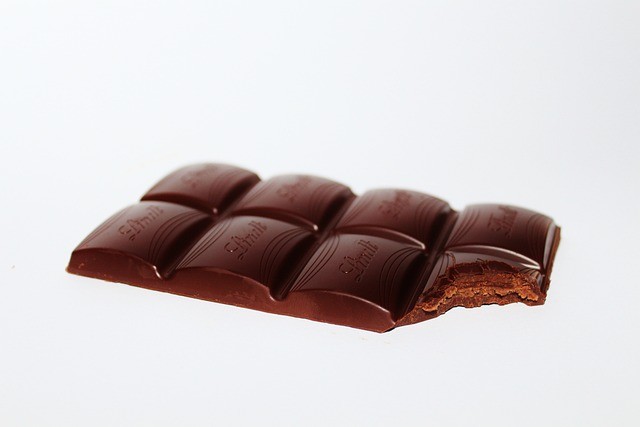
I would advise taking a quarter cup, one ounce of dark chocolate, or 2 1/3 tablespoons of cocoa powder a day to help you lower your risk of coronary heart disease.
Two servings a week of dark chocolate combined with one-third cup of almonds can help you achieve a significant reduction in plasma lipid concentration.
Taking 6 servings a week has shown to have no significant effects on your lipid profile. So small amounts go a long way in this case. Don’t overdo it.
Is Milk Chocolate High in Cholesterol?
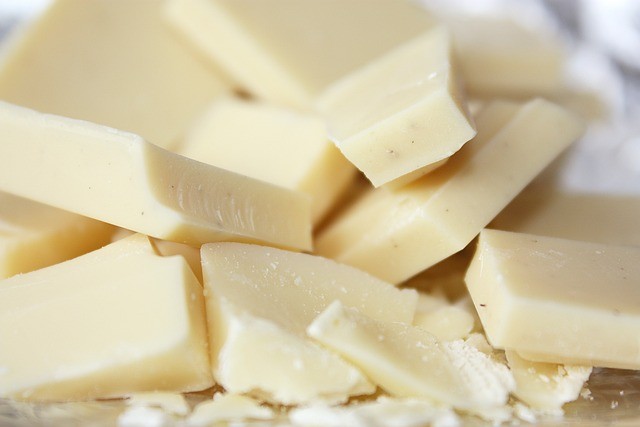
According to the USDA, 100 g of milk chocolate contains 21 mg of cholesterol. This is seven times more than the cholesterol levels in dark chocolates. A study was done to compare the effects of eating dark chocolate and milk chocolate to improve biochemical parameters of lipid and glucose metabolism.
The cocoa flavanols in dark chocolate prevented DNA damage and improved the integrity of cells. They also help improve lipid profiles lowering the risk of heart disease and blood pressure. The results showed that adding 2 g of dark chocolate with 70% cocoa to your healthy diet improved biochemical and anthropometric parameters after 6 months.
Results from high cocoa chocolate were better than those from milk chocolate because it is low polyphenol chocolate.
What are the Benefits of Eating Dark Chocolate?
Consuming dark chocolate doesn’t only have benefits on your cholesterol levels but also other benefits to your health. These include:
- Reduced blood pressure: Research has shown that consuming chocolate can be a natural way to lower blood pressure and improve blood flow in your blood vessels. Its flavanols increase the production of nitric oxide that helps with vasodilation of the smooth muscles on blood vessel walls promoting blood flow.
It is loaded with magnesium, potassium, zinc, and copper which play a significant role in regulating blood pressure.
- Anti-inflammatory and anti-oxidative properties: Polyphenols, catechins, and flavonols in dark chocolate are antioxidants that reduce oxidative stress and reduce inflammation in the body. Did you know that cocoa contains more antioxidants than berries? Now you know!
- Improve brain health: Why is it that when you take dark chocolate you are more alert and more attentive? I knew your answer would be caffeine! There’s more to it than this. High consumption of cocoa increased cognitive function and brain function due to increased brain oxygenation attributed to more cerebral blood flow.
It also contains theobromine which has antitumoral, cardioprotective, and anti-inflammatory properties which could enhance brain function.
- Lowers stress levels: Dark chocolate lowers adrenaline and cortisol hormones which are associated with enhancing stress.
- Decreases risks of some cancers like breast, prostate, and skin cancer.
- Improves insulin sensitivity and reduces insulin resistance
- Improves mood: More research is needed to understand the correlation between dark chocolate, cocoa, and mood. The assumption is it has mood-altering properties because it increases serotonin levels in the body. Polyphenols and theobromine may also be associated with these properties.
Another mechanism is attributed to the effects of dark chocolate on the gut-brain axis. Dark chocolate has been proven to have prebiotic effects on the gut microbiome, therefore believed to be able to change negative emotions via the gut-brain axis.
- Improves physical performance.
- Good for skin health: Dark chocolate increases the production of nitric oxide that increases skin circulation which can increase skin density. Flavanols also have photo protective properties, increase skin hydration and density and promote blood flow in the skin. Eating dark chocolate can protect your skin from sun damage.
- Reduce metabolic syndrome: This is because it improves blood sugar control, lipid profile and lowers blood pressure.
Is Dark Chocolate Bad for You?
Aren’t we so excited that this dark treat does not raise cholesterol levels? Well as long as you are moderating your intake, you’re good. However, excess consumption has been associated with some negative effects. These have been attributed to the caffeine in this chocolate. Excess consumption could lead to:
- Irregular heart beats
- Nausea
- Dehydration
- Insomnia
- Migraines and headaches
- Allergies
- Constipation
- Anxiety
- Irritability
Besides these, some brands have been shown to contain the heavy metals lead and cadmium which can have adverse effects on one’s health. Go for brands that have been proven to contain small amounts of these metals. Health experts consider a 4.1 ug/day amount of cadmium and 0.5 ug/day of lead safe for consumption. So look out for this when getting your bar of chocolate.
Bottom Line
Chocolate doesn’t have to be the bad guy, as long as you pick the healthy type. The dark chocolate variety can be beneficial to your heart. Almond dark chocolate can be the perfect alternative for other discretionary foods like donuts because of its effect on lipid profile.
Are you a sweet tooth? Do you love dark chocolate? What is your opinion on unsweetened almond dark chocolate? Let me know in the comment section below!

